ICC prosecutor seeks arrest warrants for Netanyahu, Hamas leader Sinwar
Benjamin Netanyahu erupts after the ICC says there were grounds to believe he and Hamas leader Yahya Sinwar bore responsibility for war crimes and crimes against humanity.
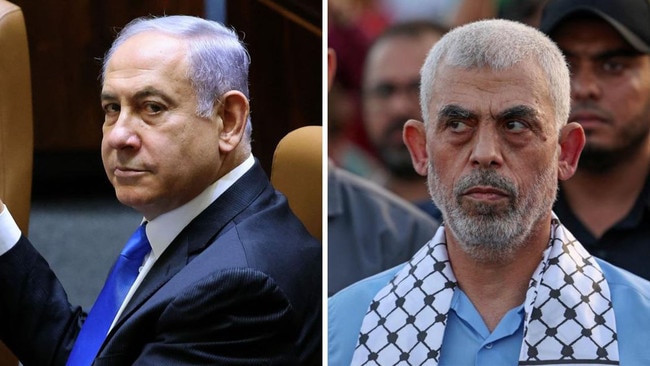
The International Criminal Court’s prosecutor is seeking arrest warrants for Israeli Prime Minister Benjamin Netanyahu, the country’s defense minister and the leaders of Hamas, an unprecedented move against a close US ally that could deal another blow to Israel’s international standing as it fights a war in Gaza.
The prosecutor said there were “reasonable grounds to believe that” Netanyahu and Defense Minister Yoav Gallant “bear criminal responsibility” for a series of “war crimes and crimes against humanity,” committed since at least Oct. 8, the day after the Hamas-led attack on Israel.
If granted by the court, arrest warrants for Netanyahu and Gallant could further complicate Israel’s ability to fight the war. Israel would likely face challenges when trying to import weapons, and Netanyahu and Gallant would also face the prospect of arrest if they visit most countries aside from the U.S., which isn’t under the court’s jurisdiction. It could diminish Israel’s standing on the world stage by shrinking the spheres in which they can operate.
President Biden condemned the prosecutor’s decision as “outrageous,” as some U.S. lawmakers called for action to be taken against the court and its officials if the arrest warrants proceed.
“And let me be clear: whatever this prosecutor might imply, there is no equivalence — none — between Israel and Hamas,” Biden said. “We will always stand with Israel against threats to its security.”
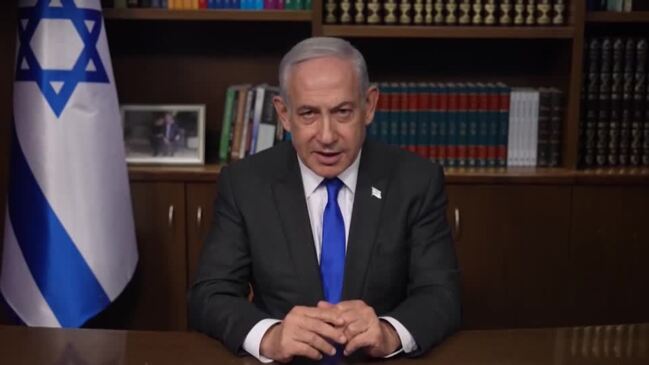
For Hamas, the stakes are far lower. The leaders named in the application for arrest warrants include the heads of the militant group’s armed wing, Yahya Sinwar and Mohammed Deif, who are believed to be hiding in tunnels inside Gaza. Ismail Haniyeh, the head of Hamas’s political wing and also named in the application, is based in Doha, Qatar, and isn’t welcome in most Western countries.
Still, in tying Israeli and Hamas leaders together in his application for the arrest warrants, the court’s prosecutor, Karim A.A. Khan, created an equivalence between the democratic state and the European Union- and U.S.-designated terrorist group that many in Israel will find hard to stomach. Hamas itself took issue with the application, which it said equated the victim with the perpetrator.
“Today we once again underline that international law and the laws of armed conflict apply to all,” Khan said. “No foot soldier, no commander, no civilian leader — no one — can act with impunity.”
The prosecutor’s office refused to answer questions beyond the statement and said no press briefing was planned.
The ICC is an independent tribunal based in The Hague established to hold high-ranking individuals accountable for grave violations of humanitarian law when domestic legal systems can’t or won’t do so. It is separate from the International Court of Justice, a United Nations tribunal that hears disputes between governments.
South Africa filed suit at the ICJ against Israel in December, alleging that Israel breached its obligations under the Genocide Convention. Israel has condemned that accusation and to date the ICJ, while directing Israel to facilitate civilian aid to the territory, has rejected South Africa’s request to order a cease-fire in Gaza.
The ICC has criminal jurisdiction over genocide, but Khan didn’t accuse any of the Israeli or Hamas defendants of that crime.
Israeli officials have warned the issuance of arrest warrants could scuttle efforts to end the conflict in the enclave and negotiate a deal to free dozens of hostages being held there by Hamas.
In a defiant video statement in Hebrew, Netanyahu vowed that he wouldn’t allow the ICC moves against him to stop Israel from prosecuting the war in Gaza until Hamas is fully toppled. He said the ICC’s decision was indicative of a type of “new antisemitism” that had also been visible at recent anti-Israel protests in Western universities.
“As the prime minister of Israel, I reject with contempt the comparison of the prosecutor in The Hague between democratic Israel and the mass-murderers of Hamas,” said Netanyahu.
“With what audacity do you dare compare the monsters of Hamas to the soldiers of the IDF (Israeli army), the most moral army in the world?”.
“This is like creating a moral equivalence after September 11 between President (George W) Bush and Osama bin Laden, or during World War II between FDR (Franklin D Roosevelt) and Hitler.”
“I promise you one thing,” Netanyahu added. “The attempt to tie Israel’s hands will fail.”
The outrageous decision by the ICC prosecutor, Karim Khan, to seek arrest warrants against the democratically elected leaders of Israel is a moral outrage of historic proportions. It will cast an everlasting mark of shame on the international court.https://t.co/ZgIF8WM5zvpic.twitter.com/36ks3Tuj9A
— Prime Minister of Israel (@IsraeliPM) May 20, 2024
Gallant’s office declined a request for comment.
U.S. Secretary of State Antony Blinken said Monday that the ICC prosecutor’s staff were scheduled to visit Monday and that Khan himself was scheduled to visit Israel early next week to discuss the investigation and hear from the Israeli government. But, said Blinken, they abruptly canceled the trips and announced the charges on cable television.
“These and other circumstances call into question the legitimacy and credibility of this investigation,” Blinken said. He added the ICC’s decision could jeopardize efforts to reach a cease-fire, get more aid into Gaza and free hostages held there.
The Biden administration has opposed an ICC move against Israeli leaders, saying it doesn’t believe the court has jurisdiction to rule on the case.
Khan’s allegations against the Israeli leaders focused largely on what he said were decisions and actions taken by the Israeli government and military that have led to a humanitarian crisis inside Gaza. He accused the Israeli government of enacting policies aimed at intentionally starving Gazan civilians. Israel has strongly opposed such claims and instead says it is seeking to allay the humanitarian crisis under difficult wartime conditions.
More than 35,000 people have been killed in the enclave since the start of the war there last year, most of them civilians, according to Palestinian officials. The numbers don’t say how many were combatants.
The ICC prosecutor also said that it had reasonable grounds to believe Hamas leaders Sinwar, Deif and Haniyeh bear criminal responsibility for war crimes and crimes against humanity committed on the territory of Israel and the Gaza Strip from at least Oct. 7, the day of the attacks on southern Israel that authorities say left 1,200 people dead. The alleged crimes included extermination, murder, taking hostages, rape and sexual violence, the prosecutor said.
Under ICC procedures, a three-judge panel will review Khan’s request and issue arrest warrants if it finds reasonable grounds for the prosecutor’s allegations. Legal experts said the process could take days or a few weeks.
Last year, the ICC issued a warrant for Russian President Vladimir Putin. It has also previously issued an arrest warrant for the former longtime leader of Sudan, Omar al-Bashir. Many suspects in ICC cases have remained at large for years, although some have been brought to The Hague for trial.
Netanyahu would be the first head of a Western-aligned democratic government to be subject to an arrest warrant from the ICC, legal experts said.
ICC member states, which include Canada, the U.K. and most European nations, are obligated to arrest suspects if they are found in their territory. Compliance has been spotty; in 2015, for instance, South Africa declined to arrest al-Bashir, who the ICC prosecutor has charged with genocide and other crimes, during his visit to an African summit meeting.
The prime minister’s political allies and rivals in Israel also slammed the ICC prosecutor’s decision and said they would jointly fight against it.
Hamas said the prosecutor’s request for arrest warrants against Israelis came “seven months late” and should have included all the officials and soldiers responsible for what it said were “thousands of crimes against Palestinian civilians.”
“Our position is clear: arrests should target those who have committed war crimes and genocide, as witnessed by the world and documented by human-rights and international organizations, specifically the leaders of the occupation,” said Ghazi Hamad, a member of the Hamas political bureau.
If arrest warrants are issued for Hamas leaders, Palestinian officials noted it could complicate efforts to form a Palestinian unity government that included these senior Hamas officials.
Israel at the outset of its war imposed a tight seal over aid and utilities into Gaza, but began easing its policy under international pressure within the first weeks of the war. The court will have to evaluate whether Israel’s actions and statements about denying humanitarian aid made by Israeli leaders likely violated international law.
“The laws of war do allow limits on the introduction of humanitarian aid under very specific conditions,” including scenarios tied to operational considerations and ensuring aid isn’t diverted to military forces, said Hebrew University of Jerusalem international law professor Yuval Shany. “The question would be whether the reasons that underlay the Israeli decision met the conditions underlying those exceptions,” he said.
Israel, like the U.S., isn’t a party to the Rome Statute, which puts countries under the ICC’s jurisdiction. But under its rules, the 124 state and other parties to the court are obliged to detain officials who face arrest warrants, putting many Israeli allies in a bind.
The court in 2015 recognized the State of Palestine as a signatory, and in 2021 determined itself as having jurisdiction in the West Bank, Gaza and East Jerusalem. Palestine isn’t recognized by the U.S., Israel and many other countries.
The ICC report said the charges were based on statements by Israeli officials, as well as testimony from within Gaza, authenticated videos, photos, and audio files, and satellite imagery.
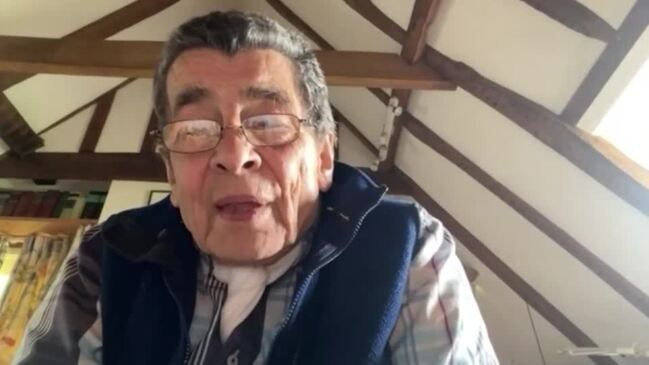
An expert panel advising the ICC prosecutor said that it concluded there were reasonable grounds to believe Israel was committing crimes tied to starvation based off what it called a siege on Gaza, closed border crossings, “arbitrary restrictions on entry and distribution of essential supplies,” shutting electricity and water from Israel into Gaza and “severely restricting food, medicine and fuel supplies.” It also cited killings of aid workers and acts of violence against civilians attempting to receive aid distributions.
Officials from the U.N. and international aid organizations have accused Israel of not doing enough to stabilize the humanitarian situation in Gaza. Israeli officials say they are allowing enough aid to get into the enclave but the U.N. and aid groups are failing to distribute it effectively.Eran Shamir-Borer, a senior fellow at the Jerusalem-based Israel Democracy Institute, said the ICC charges were a “dramatic development” against a country with a modern democratic legal system, including legal officials that advise the government and military. He noted Israel’s supreme court is currently hearing a case about the humanitarian situation in Gaza.
Sean Watts, a law of war expert at U.S. Military Academy at West Point, said the ICC may have started with starvation-related charges against Israel because the associated evidence collection for it has a lower bar than issues related to targeting and bombing.
Watts noted that the expert panel advising the ICC prosecutor had no military representative despite the fact that the charges carry considerable military significance.
Jess Bravin, Carrie Keller-Lynn, Anat Peled, Saleh al-Batati and Fatima AbdulKarim contributed to this article.
The Wall Street Journal

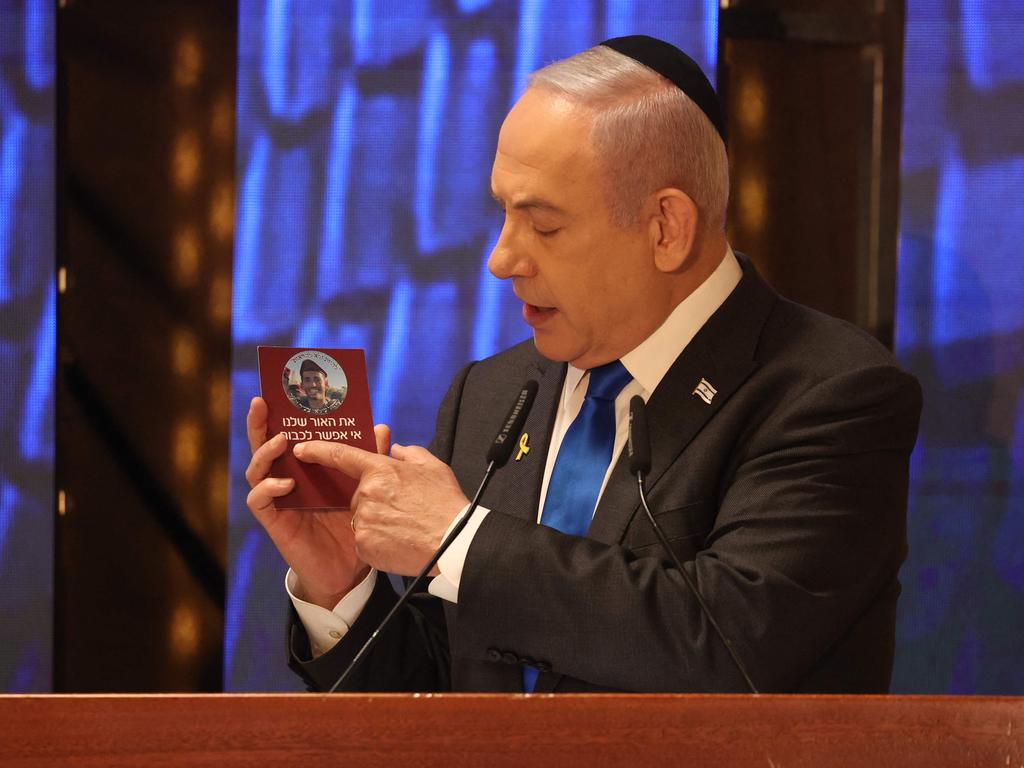

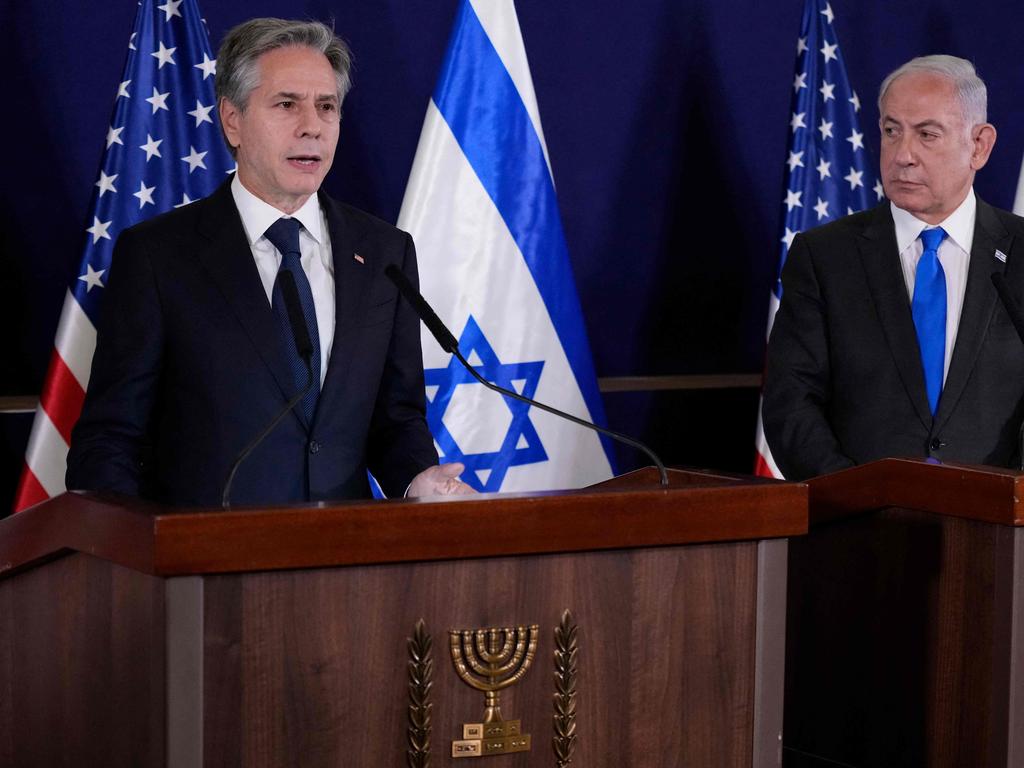
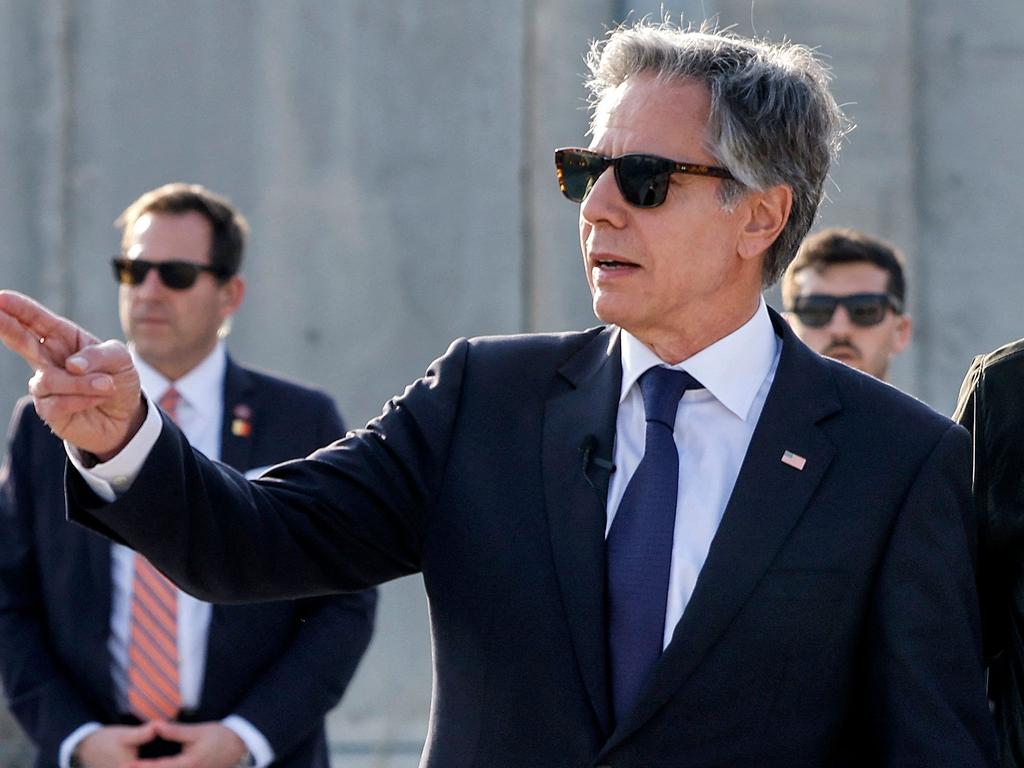


To join the conversation, please log in. Don't have an account? Register
Join the conversation, you are commenting as Logout